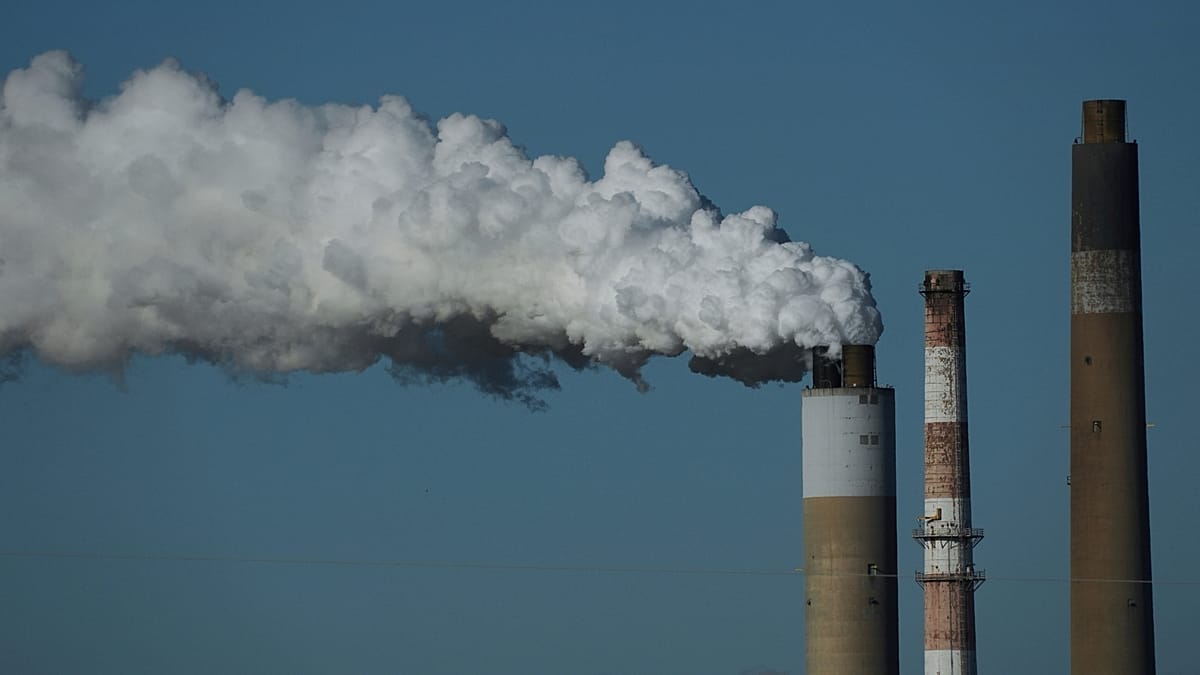
European lawmakers in the European Parliament’s environment committee backed the revision of the bloc’s climate law on Monday which sets the EU27 to cut 90% greenhouse gas emissions by 2040.
Parliament’s position aligns with the text agreed by EU member states on 5 November, following lengthy political talks that secured policy flexibilities to help EU nations reach the 90% reduction target without jeopardising the competitiveness of their industries.
The ballot, with 55 votes in favour and 32 against, paves the way for the full house to adopt the revision of the controversial 2040 climate law, after several delays and infighting inside the chamber.
Key points remain, such as the target of the 90% reduction by 2040, compared to 1990 levels and the possibility of using up to 5% of carbon credits to offset underperforming sectors.
Another 5% will be considered under a review clause should EU countries need to compensate for the lack of natural carbon removers, such as reforestation outside the bloc.
Spanish lawmaker Javi Lopez (S&D), leading the file in the Parliament, hailed the vote as a “clear signal” reaffirming the bloc’s commitment to climate leadership.
“The S&Ds have worked tirelessly to ensure that the 2040 goal reflects both ambition and social fairness — we want to protect our planet while ensuring no one is left behind. Our focus now must be on delivering the tools, funding, and industrial strategy needed to make this transition a success,” said Lopez.
Overall, only “minor changes” have been agreed upon, according to lawmaker Gerben-Jan Gerbrandy (the Netherlands/Renew Europe), who was also part of the negotiations.
International carbon credits
The most significant is a stronger wording on the international credits, which have to be “high-quality” and “high-integrity,” a reference that featured in the European Commission’s proposal but was later deleted by the European Council.
The Parliament also wants the purchase and use of such credits to be regulated to ensure they effectively result in emission reductions in non-EU countries.
Agreements related to the use of carbon credits must be subject to “robust safeguards ensuring integrity, avoidance of double counting, transparent governance, strong monitoring, reporting and verification methodologies,” the adopted text reads.
Lawmakers also urged the Commission to consider stricter criteria than those set out in the Paris Agreement, according to the Parliament.
Tiemo Wölken (Germany/S&D) recognised that the outcome was not as ambitious as the Socialists intended, but said the forged deal was “better than no deal.”
“The Parliament has shown responsibility and unity in the face of climate scepticism and populism. We will continue to push for stronger measures, more investment in green jobs, and a fair deal for workers and communities most affected by the transition,” Wölken said.
Austrian lawmaker Lena Schilling (Greens/EFA) regrets the decision to use international credits, describing it as a “loophole” that “weakens our climate ambition.”
“Since member states demanded their [international credits] use, we must at least ensure that they deliver real, verifiable climate impact; otherwise, they risk undermining our climate goals and costing taxpayers billions without reducing emissions,” said Schilling.
The deal was negotiated by the European People’s Party (EPP), Socialists and Democrats and Renew Europe, which form the centrist majority supporting the Commission, plus the Greens/EFA group.
Together these political groups represent a large majority of the Parliament, which paved the way for the law’s approval in the Parliament’s environment committee on Monday and sets the course for full adoption in Thursday’s plenary in Strasbourg.
